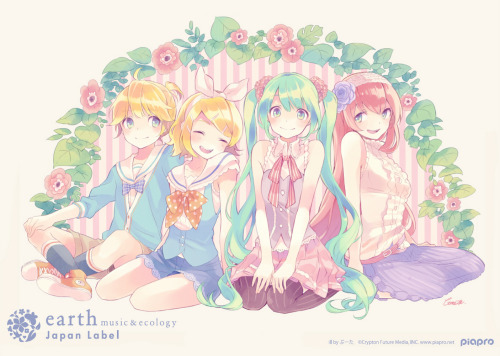夢と葉桜 ♥
Lesson 6 [How much is that magazine?] 

 posted at: Saturday, 23 November 2013 | 04:19 | 0 Love! | Give me some love?
posted at: Saturday, 23 November 2013 | 04:19 | 0 Love! | Give me some love? 
*Note : Translation is below.
(1) a : Kono tokei wa Nihon-sei desu ka.
b : Iie, sono tokei wa Nihon-sei dewa arimasen.
(2) a : Sono hito wa dare desu ka?
b : Kono hito wa Ken-san desu.
(3) a : Ano tegami wa Honda-san no desu ka.
b : Iie, ano tegami wa Honda-san no dewa arimasen,
(4) a : Sono zasshi wa ikura desu ka.
b : Kono zasshi wa ju-go doru desu.
(5) a : Kimu-san wa dono hito desu ka.
b : Kimu-san wa sono hito desu.
(6) a : Kaisha no denwa-bango wa nan-ban desu ka.
b : Zero san no kyu yon roku roku no kyu hachi nana san desu.
Translation
(1) a : Is this watch made in Japan?
b : No, that watch is not made in Japan.
(2) a : Who is that person?
b : This person is Mr. Ken.
(3) a : Is that letter over there Mr. Honda's?
b : No, that letter over there is not Mr. Honda's.
(4) a : How mush is that magazine?
b : This magazine is 15 dollar.
(5) a : Which person is Ms. Kim?
b : Ms. Kim is that person.
(6) a : What is (your) company telephone number?
b : (It) is 03-9466-9873.
Vocabulary
ikura ( how much ) [ of a price ]
Nihon-sei ( made in Japan )
-sei ( made in ) [ place ]
( made of ) [ material ]
tokei (watch, clock)
tegami (letter)
doru (dollar)
denwa-bango (telephone number)
nan-ban ( what number )
Structure
(1) [ kono / sono / ano / dono + noun ]
kono hon -> this book
sono hon -> that book
ano hon -> that book over there
dono hon -> which book
(noun)
a : Ken-san wa dono hito desu ka. ( Which person is Mr. Ken ? )
b : Ken-san wa sono hito desu. ( Mr. Ken is that person.)
"kono, sono, ano, dono" are of the same meanings with "kore, sore, are, dore" respectively except that
the formers are used when they are followed by nouns or noun phrases.
(2) [ ikura ]
a : Kono hon wa ikura desu ka. ( How much is this book ? )
b : Sono hon wa 25 doru desu. ( That book is 25 dollars. )
(3) [ denwa-bango ]
Telephone numbers in Japan are often read with "no" after the area codes and exchange codes.
Example :
01-6193-3601
Zero ichi no roku ichi kyu san no san roku zero ichi
(4) [ Singular and Plural ]
In Japanese Language, there is almost no difference between a singular and a plural noun. "zasshi" can mean "magazine" or "magazines". However, counters and some suffixes are used to indicate plurals, example :
watashi : I
watashi-tachi : we
Japanese Proverb
Ichi no kiite ku o shiru
[ Listening to one thing and knowing ten things. ]
When describing the very first part of something or an information to a person, the person immediately understands the whole part of it. This proverb indicates intelligence.
Suji / Numbers
3 san
4 shi / yon
5 go
6 roku
7 shichi / nana
8 hachi
9 ku / kyu
10 ju
11 ju-ichi
12 ju-ni
13 ju-san
14 ju-yon
15 ju-go
16 ju-roku
17 ju-nana
18 ju-hachi
19 ju-ku / ju-kyu
20 ni-ju
31 san-ju-ichi
40 yon-ju
50 go-ju
60 roku-ju
70 nana-ju
80 hachi-ju
90 kyu-ju
100 hyaku
101 hyaku-ichi
111 hyaku-ju-ichi
200 ni-hyaku
*300 san-byaku
400 yon-hyaku
500 go-hyaku
*600 rop-pyaku
700 nana-hyaku
*800 hap-pyaku
900 kyu-hyaku
1,000 sen
2,000 ni-sen
*3,000 san-zen
4,000 yon-sen
5,000 go-sen
6,000 roku-sen
7,000 nana-sen
*8,000 has-sen
9,000 kyu-sen
10,000 ichi-man
20,000
30,000
40,000
50,000
100,000
200,000
300,000
1,000,000
2,000,000
*6,000,000
*8,000,000
10,000,000
20,000,000
*30,000,000
50,000,000
*80,000,000
90,000,000
100,000,000
1,000,000,000
10,000,000,000
1/3 [one per three] san-bun-no-ichi
0 rei/zero
0.2 rei-ten-ni
3/4 [three per four] yon-bun-no-san
1.5 itten-go
* Take note of the changing sound!
(1) a : Kono tokei wa Nihon-sei desu ka.
b : Iie, sono tokei wa Nihon-sei dewa arimasen.
(2) a : Sono hito wa dare desu ka?
b : Kono hito wa Ken-san desu.
(3) a : Ano tegami wa Honda-san no desu ka.
b : Iie, ano tegami wa Honda-san no dewa arimasen,
(4) a : Sono zasshi wa ikura desu ka.
b : Kono zasshi wa ju-go doru desu.
(5) a : Kimu-san wa dono hito desu ka.
b : Kimu-san wa sono hito desu.
(6) a : Kaisha no denwa-bango wa nan-ban desu ka.
b : Zero san no kyu yon roku roku no kyu hachi nana san desu.
Translation
(1) a : Is this watch made in Japan?
b : No, that watch is not made in Japan.
(2) a : Who is that person?
b : This person is Mr. Ken.
(3) a : Is that letter over there Mr. Honda's?
b : No, that letter over there is not Mr. Honda's.
(4) a : How mush is that magazine?
b : This magazine is 15 dollar.
(5) a : Which person is Ms. Kim?
b : Ms. Kim is that person.
(6) a : What is (your) company telephone number?
b : (It) is 03-9466-9873.
Vocabulary
ikura ( how much ) [ of a price ]
Nihon-sei ( made in Japan )
-sei ( made in ) [ place ]
( made of ) [ material ]
tokei (watch, clock)
tegami (letter)
doru (dollar)
denwa-bango (telephone number)
nan-ban ( what number )
Structure
(1) [ kono / sono / ano / dono + noun ]
kono hon -> this book
sono hon -> that book
ano hon -> that book over there
dono hon -> which book
(noun)
a : Ken-san wa dono hito desu ka. ( Which person is Mr. Ken ? )
b : Ken-san wa sono hito desu. ( Mr. Ken is that person.)
"kono, sono, ano, dono" are of the same meanings with "kore, sore, are, dore" respectively except that
the formers are used when they are followed by nouns or noun phrases.
(2) [ ikura ]
a : Kono hon wa ikura desu ka. ( How much is this book ? )
b : Sono hon wa 25 doru desu. ( That book is 25 dollars. )
(3) [ denwa-bango ]
Telephone numbers in Japan are often read with "no" after the area codes and exchange codes.
Example :
01-6193-3601
Zero ichi no roku ichi kyu san no san roku zero ichi
(4) [ Singular and Plural ]
In Japanese Language, there is almost no difference between a singular and a plural noun. "zasshi" can mean "magazine" or "magazines". However, counters and some suffixes are used to indicate plurals, example :
watashi : I
watashi-tachi : we
Japanese Proverb
Ichi no kiite ku o shiru
[ Listening to one thing and knowing ten things. ]
When describing the very first part of something or an information to a person, the person immediately understands the whole part of it. This proverb indicates intelligence.
Suji / Numbers
1 ichi
2 ni
3 san
4 shi / yon
5 go
6 roku
7 shichi / nana
8 hachi
9 ku / kyu
10 ju
11 ju-ichi
12 ju-ni
13 ju-san
14 ju-yon
15 ju-go
16 ju-roku
17 ju-nana
18 ju-hachi
19 ju-ku / ju-kyu
20 ni-ju
31 san-ju-ichi
40 yon-ju
50 go-ju
60 roku-ju
70 nana-ju
80 hachi-ju
90 kyu-ju
100 hyaku
101 hyaku-ichi
111 hyaku-ju-ichi
200 ni-hyaku
*300 san-byaku
400 yon-hyaku
500 go-hyaku
*600 rop-pyaku
700 nana-hyaku
*800 hap-pyaku
900 kyu-hyaku
1,000 sen
2,000 ni-sen
*3,000 san-zen
4,000 yon-sen
5,000 go-sen
6,000 roku-sen
7,000 nana-sen
*8,000 has-sen
9,000 kyu-sen
10,000 ichi-man
20,000
30,000
40,000
50,000
100,000
200,000
300,000
1,000,000
2,000,000
*6,000,000
*8,000,000
10,000,000
20,000,000
*30,000,000
50,000,000
*80,000,000
90,000,000
100,000,000
1,000,000,000
10,000,000,000
1/3 [one per three] san-bun-no-ichi
0 rei/zero
0.2 rei-ten-ni
3/4 [three per four] yon-bun-no-san
1.5 itten-go
* Take note of the changing sound!



 : See you soon...!
: See you soon...! Skin by;
Skin by; 


 Replace Your Profile ! :D
Replace Your Profile ! :D

0 Comments:
Post a Comment
Back to the Blog?